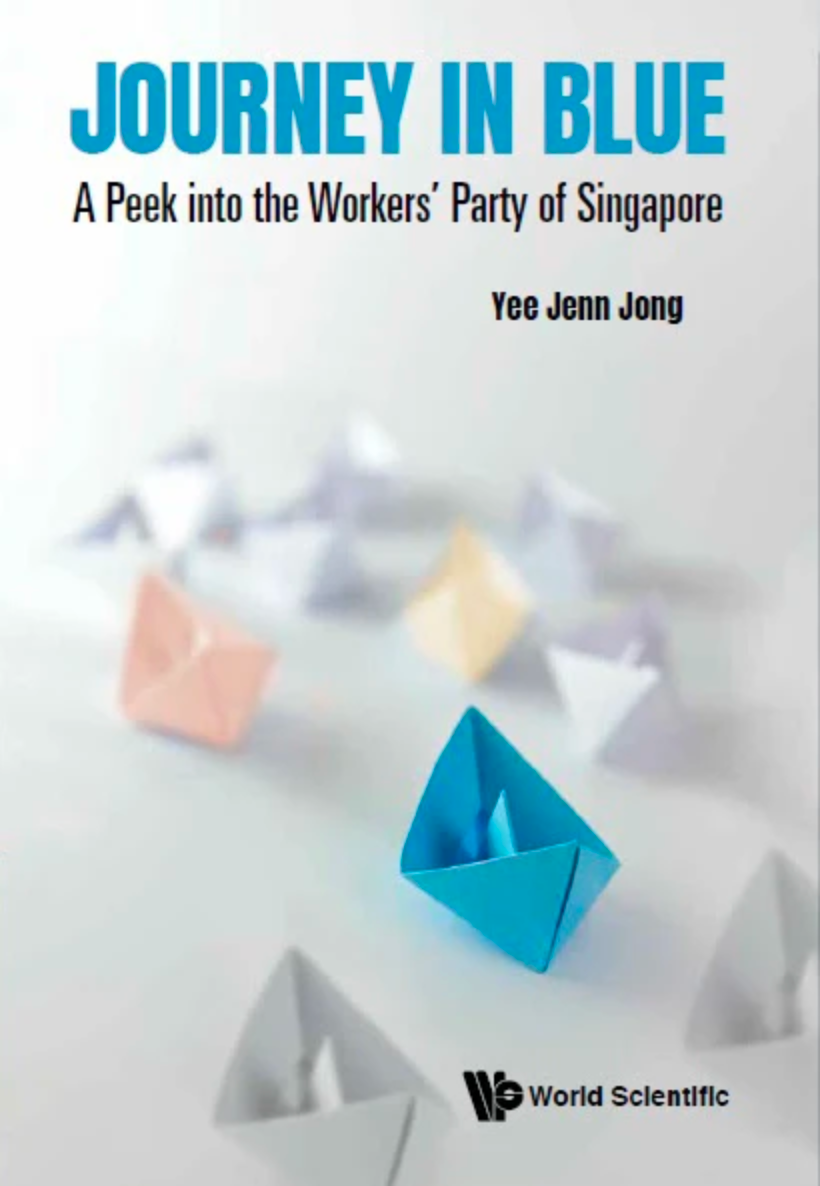Wrote the Foreword to Yee Jenn Jong's book Journey In Blue, 17 October 2020
- Kenneth Paul Tan
- Oct 17, 2020
- 3 min read
Kenneth Paul Tan wrote the foreword to former Workers' Party Nominated Member of Parliament Yee Jenn Jong's book Journey In Blue: A Peek Into The Workers' Party of Singapore, World Scientific, 2020 (https://www.worldscientific.com/worldscibooks/10.1142/12096).

Foreword
The Workers Party (WP) is today the most successful opposition party in Singapore, where the People’s Action Party (PAP) has been in control of politics and government since 1959. In good times and bad, a resilient WP has been able to maintain viability, relevance, and vitality in a dominant party system, democratic in form but uncompetitive in practice.
The PAP claims, reasonably, that it is not the ruling party’s job to make things easier for the opposition. And yet, this claim belies its sustained efforts to make life very much harder for any party that dares to challenge its pre-eminence. The playing field is anything but level.
Therefore, to say that the WP is the most successful opposition party in these circumstances is to say a lot. In the 2020 general elections, for instance, it was not only able to retain control of Hougang SMC and Aljunied GRC, but did so with significantly bigger margins. Additionally, it won Sengkang GRC with candidates who appeared youthful, diverse, articulate, and empathetic, but no less credentialed than many in the PAP. In fact, the WP actually won 50.5 per cent of the votes totalled from constituencies that it contested, which means that if we exclude constituencies it did not contest, the WP narrowly beat the ruling party.
But what has the WP had to do in order to become successful? Even as it argued for a “first-world parliament”, the WP had to restrain itself from expressing any ambition larger than simply increasing the strength of opposition voices in parliament for the purpose of enhancing parliamentary checks and balances. It had to stay firmly within the ideological middle-ground and appear as pragmatic (even as technocratic) as possible, offering technically proficient policy alternatives that do not suggest radical ideological difference. Compared to parties like the Singapore Democratic Party (SDP), which offers a more differentiated and pronounced ideological alternative to the PAP’s globalised neoliberalism, the WP seems like a tinted-blue-mirror image of the PAP, no doubt more inclined to advance worker interests in trade-offs with corporate ones than the ruling party would, but still broadly accepting of the PAP’s hegemonic ideological foundations. The WP had to grow without frightening an electorate that has never seen an alternative to the PAP government and that readily imagines how things would simply fall apart if the PAP were to be de-throned in a “freak election”.
In such strategically and tactically challenging circumstances, the prospects of the WP would depend on cautious expansion, ego management, members’ loyalty, strong leadership, strict party discipline, and carefully orchestrated public communication and image cultivation. Not surprisingly, even as the WP’s social media campaigns have become extraordinarily effective in signalling authenticity and appeal, the public continues to know very little about what actually goes on within the party.
And that is one reason why I welcome Yee Jenn Jong’s book, which promises a peek into a party whose every move is calculated and calibrated. But it delivers more than just a peek.
Jenn Jong’s account of what he saw and what he did over his decade-long involvement in the party, particularly the five years when he served as a non-constituency member of parliament (NCMP), opens the reader’s eyes not only to the backstage of political theatre, but also to the on-stage stories and myths that both attract public fascination for current affairs and politics, as well as degrade the ideals of democracy to crude notions of disloyalty to Singapore when considering the meaning of opposition and opposition-supporters. The book helpfully seeks to dispel many such myths that have arrested Singapore’s political development.
Jenn Jong candidly shares some very revealing impressions he has had of many key figures in the WP leadership as well as his parliamentary and constituency colleagues. Along with rich descriptions of the mechanics and dynamics of opposition-party life, these impressions form a valuable collection of character sketches that may help explain the reasons and motivations behind what have sometimes seemed rather surprising, and at other times even frustrating, turns of events.
If we assume that Singapore’s electoral system will become more competitive and evolve over time into something like a two-party system, where the WP has just as much of a chance to form the government as the PAP, then we the electorate will need to understand deeply what the WP as ruling party might look like in future. For gaining such deep understanding, Jenn Jong’s book will become a vital resource in the expanding scholarship on Singapore’s political development.
Professor Kenneth Paul Tan, PhD (Cambridge)
Lee Kuan Yew School of Public Policy, National University of Singapore;
Hong Kong Baptist University
Author of Singapore: Identity, Brand, Power (Cambridge University Press, 2018)
& Governing Global-City Singapore: Legacies and Futures After Lee Kuan Yew (Routledge, 2017)
17 October 2020

Comments